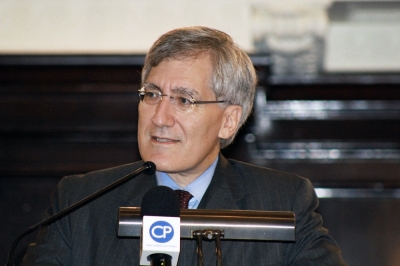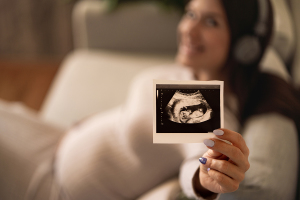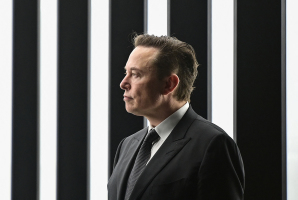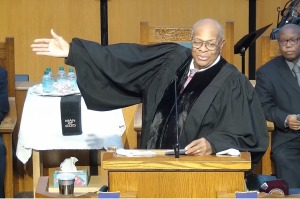The Mario That Might Have Been

Mario Cuomo, the former Governor of New York who died last week at age 82, was scarcely the eminent scholar or distinguished thinker his more excitable supporters imagined he was. The idea that he was the American Cicero, a twentieth-century Thomas More, or his generation's Abraham Lincoln was and is risible. As Ramesh Ponnuru has shown, Cuomo was not above resorting to demagoguery, as in his manipulative rhetoric depicting Ronald Reagan as oblivious to Americans' economic hardship. And sometimes his arguments were so blatantly fallacious as to cast him in the role of the buffoon. (For example, he once insisted that we can claim no right not to kill our unborn children unless we are prepared to acknowledge a right of others to kill theirs—a logic that falters rather comically when applied to the murder of seven-year-olds, or the holding of slaves.) But he was far from unintelligent or lacking in talent. And so we mourn for what he might have been.
Cuomo might have been a statesman. He might have stood up for the truth about the inherent and equal dignity of every member of the human family. He might have upheld the pro-life position in the liberal movement and the Democratic Party. In the finest traditions of both, he might have stood up for the little guy—the littlest of all. He might have made the liberal case for the unborn child's right to life. He might have held back the tide of pro-abortionism among Democrats. Who knows? He might even have turned it. He might have succeeded where his contemporary, Governor Robert P. Casey of Pennsylvania, was thwarted by failing health.
Cuomo claimed to accept his Church's teaching that abortion is wrong, but he avoided ever making plain its basis. The little guy—the child in the womb—rarely made an appearance in his comments on the issue. As Peter Steinfels notes, in a thoughtful consideration of Cuomo's life written from a liberal Catholic's perspective, "Cuomo repeatedly insisted on his adherence to church teaching but also fudged on any clear statement of belief, beyond this adherence, about the moral status of fetal life, preferring phrases about 'respect' or 'potential.'" He spoke of Catholic teaching against abortion as a "dogma," like the mystery of the Incarnation or the Immaculate Conception. He accepted it on faith but would not "impose" it on others. That would be a violation of their religious freedom, he maintained. Going with the flow in his party and the liberal movement, he campaigned on the platform that women have a "right" to abortion—at any time, for any reason, even paid for by implicating the taxpayer in what was allegedly a purely "private" matter.
In truth, Cuomo abandoned his Church's teaching by abandoning abortion's unborn victims and doing his best to shuffle them off stage. What the Church actually teaches is that abortion is a justice issue—the child in the womb has a right to life and to the law's protection. As a human being—a living individual of the human family, albeit at an early stage of development—his or her rights are equal to those of all other human beings. As a matter of justice, the law must protect him or her, as it must everyone else, from deliberate assault and lethal violence.
Because Cuomo was not unintelligent or ignorant of what his Church taught and why, we cannot excuse his injustices against the most vulnerable by supposing that he just didn't know any better. Nor can we imagine that his abandonment of the unborn to lethal violence was anything less than a grave injustice. He fought to preserve the abortion license. He worked to deny the unborn their right to legal protection. He boasted of his devotion to "a woman's right to choose abortion" and sought endorsements from groups, such as Planned Parenthood, which are dedicated to expanding that "right."
When Cuomo's son, the current governor of New York, said that right-to-life people are among the "extreme conservatives" who have no place in the state of New York, he was speaking as a chip off the old block—demagogically appealing to his pro-choice constituency by expressing contempt for people who take seriously the implications of a teaching he professes to share as a faithful, communion-taking Catholic. His father had cast his lot with powerful interests that promote and profit from the destruction of unborn children. He was their champion, and they filled his campaign coffers and activated their supporters at election time. He got what he bargained for.
But think what might have been had Cuomo, when he was the man of the hour, said, "No, all men are created equal. I will not abandon an entire class of human beings to the injustice of abortion. I will stand in the tradition of pro-life liberals and Democrats such as Hubert H. Humphrey, Thomas Eagleton, and Sargent Shriver." Some say he would never have become governor of New York. Perhaps so. It may be that by then the state pro-abortion movement was strong enough to defeat any candidate for statewide office who did not pledge fealty. Perhaps Cuomo would have gone down fighting for what he knew was right, in a last hurrah of pro-life liberals and Democrats.
But perhaps not. Cuomo was a shrewd politician—we have to give him that—and he could be a powerful speaker. Buoyed by the conviction of saying what he knew in his heart was true, he might have been both more compelling and less demagogic, like Governor Casey. Cuomo, blessed with good health, might have succeeded where Casey could not. He was a tough, agile debater. Against the party's elite, he could have made the case to the people of New York—and America—for the unborn child. It is a case, after all, that can easily be made by appealing to the basic facts of human development and the basic principle of human equality. As a liberal and a Democrat, Cuomo would have been on familiar turf in making just such an argument. He would have had credibility in adding that our care and compassion can and must extend as well to expectant mothers and families in need.
As it is, the pro-life Democrat is an endangered species among politicians nationally, and the pro-life liberal has virtually gone the way of the Dodo bird. The defense of the unborn has become a "conservative" cause and the Republicans have been left in sole possession of the pro-life banner. Partly as a result, countless former Democrats—Catholics, Evangelicals, and others—are now Republicans. There was a time, in the late 1970s and early 1980s, when many of them were still Democrats and looked for a leader who shared their pro-life convictions. Ronald Reagan became their man. Mario Cuomo might have been.
This column was originally published in The Public Discourse.





























